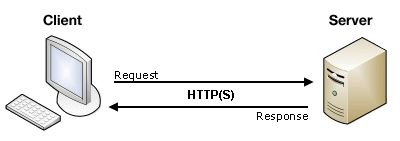🙋🏻 HTML Form Handling
Form handlers are crucial for processing the data submitted by users in web forms. This guide provides an overview of client-side and server-side form handling, highlighting best practices for capturing and processing user input.

🖥 Client-side Form Handling
Client-side form handling is often managed using JavaScript to validate data before sending it to the server.
Example: Capturing Form Data with JavaScript
<form id="userForm">
<label for="username">Username:</label>
<input type="text" id="username" name="username" required>
<button type="submit">Submit</button>
</form>
<script>
document.getElementById('userForm').addEventListener('submit', function(event) {
event.preventDefault(); // Prevents form from submitting normally
const formData = new FormData(event.target);
const username = formData.get('username');
console.log('Submitted Username:', username);
});
</script>
Benefits of Client-side Handling:
- Reduces server load by validating and handling data locally.
- Provides immediate feedback to users.
🌐 Server-side Form Handling
Server-side form handling involves processing form submissions on a server using languages such as Node.js, PHP, Python, or others.
Example: Simple Node.js Form Handler
const express = require('express');
const app = express();
app.use(express.urlencoded({ extended: true }));
app.post('/submit-form', (req, res) => {
const { username } = req.body;
console.log('Received Username:', username);
res.send(`Form received with username: ${username}`);
});
app.listen(3000, () => {
console.log('Server is running on http://localhost:3000');
});
Benefits of Server-side Handling:
- Ensures data security and integrity.
- Processes and stores user input for long-term use.
🔒 Best Practices for Secure Form Handling
- Sanitize and Validate User Input: Always clean and validate input data on the server to prevent SQL injection, XSS, and other vulnerabilities.
- Use HTTPS: Ensure your site uses HTTPS to encrypt data transmitted between the client and server.
- Limit Data Exposure: Avoid sending sensitive data in query parameters.
🔗 Further Reading
Understanding form handlers and applying best practices ensures robust and secure user data processing.
📝 Summary
Client-side and server-side form handling are essential for processing user input securely. By combining client-side validation with server-side processing, web developers can create reliable and secure web forms.